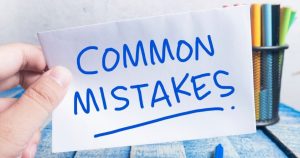Strategies for reading to help struggling readers
5 min read
Reading ability is one of the main skills children learn during their initial time at school. Children learn through recognizing speech and pronunciation and sounds of words from their books. And with the practice of spelling and reading, they become more fluent in reading. With the grip on more complex vocabulary, the reading becomes simple. However, learning to read is not an easy task for some children. Because of struggling in reading, children fall behind in their studies and develop low confidence and self-esteem. And, not being able to read affects the understanding of every subject and the ability to write. When children can not read, they also can not write. It affects children’s mental health, and they can not give proper attention to their education.
It is important to give early training to the students who have difficulty in reading. And the requirements to learn reading is different for every child. As there are many reasons why children struggle in reading, there are different techniques to help them accordingly. Dyslexia is a common condition in children who have struggled with reading. It is a learning disorder in which the child has a hard time spelling and reading words. Many learning disorders affect children’s reading ability of children but around seventy percent of children are affected by dyslexia. Lack of recognition of words and not being able to spell properly affect the reading ability. The most common strategy to help dyslexia children is to teach them through a multi-sensory approach emphasizing phonics.
When children experience difficulty in reading and can not concentrate on their studies, they ask for help from online law essay help uk. The other most common condition is attention deficit disorder which prevents students from reading. Children with attention deficit disorder have difficulty understanding what they are reading, unlike the sound problem like dyslexia children. Following are the few strategies to help struggling readers.
- Ask students to read out loud
Teachers can ask students to read the paragraph loudly so that if they have difficulty recognizing any words or spelling, teachers can help them. But this activity is not appropriate for the class because when students who have struggled in reading will read in front of a full class, it might be stressful for them. That is why it is not right to call out struggling readers in front of the whole class but ask them to read in private or tell them to record their reading, which can be listened to by the teacher later and analyze the mistakes and difficult words for the students.
- Use inclusive approach
Support, encourage and appreciate even small successes when students learn to read. Teachers can help by reading the text beforehand to the students, so children will be familiar with it. Try first with story reading, and it will increase the interest level of students. Do not put pressure on them and give them their own time to process and understand the words. This technique will empower students to help them in learning to read.
- Ask students to use fingers or pencils to follow the text while reading
It is important while reading when students do not lose the sentence or line they are reading. They can use a finger, pencil or ruler to continue to follow what they are reading. Some also use the technique of covering the bottom of the page when they read so their attention does not get lost, and their focus would be only on the sentence they are reading. These techniques will help students with ADHD (Attention Deficit Hyperactivity Disorder) condition.
- Make them read the same paragraph multiple time
Reading the same paragraph multiple times help struggling readers to improve their reading ability. As they read the same text many times, it will become simple and easy for them. It will also increase the confidence of struggling readers and encourage them to learn reading. This technique will also help them to recognize and understand the words better.
- Use of cloze activities
Cloze activities are proved to be effective for struggling readers to help them learn reading. It is the process in which words are missed from the paragraphs to add the words according to their understanding. Struggling readers have to comprehend and utilize their intelligence to recognize the missing words. The learner does not have to recognize the particular word but the word which makes sense in the given sentence. After finding the first word will encourage students more, and they will try to complete the whole exercise. Teachers should use this technique in the class and read the text out loud of closing activities to make students understand better.
- Teaching vocabulary
Create a list of easy and regular used words list and ask students to practice reading that list. And then teach them how to use these words in a sentence. Make sure that this activity should be oral so that students learn to read these words. You can also write down the words on board and then ask each student to read and use the words in a sentence. Ask students to practice these exercises at home too. Crosswords, hangman or other spelling games can also be effective in teaching the vocabulary.
- Make use of different books and reading material
When students are learning to read, It might be not easy to read the text they are not interested in. Try to use different books and materials in which kids are interested. It can be any comics, storybook or even poem. You can also use interactive books with pictures, and it also increases the curiosity and interest of students. Make sure students are invested in the reading. Making them teach from their favourite book can increase their interest level and encourage them to learn in a better way. Reading and writing are both essential skills to survive in this world. It required a lot of practice to become fluent in reading. But when students have the struggle to read, do not discourage them. Try different fun activities and help them to learn. Parents can also try to arrange a unique tutor for their children.





